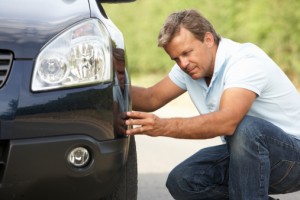- ATV accidents
- Brain Injuries
- Bus Accident
- Car Accidents
- Construction Accident
- Distracted Driving
- Drugged Driving Accident
- DUI
- Firm News
- Mass Tort
- Medical Malpractice
- Motorcycle Accidents
- Pedestrian Accidents
- Personal Injury
- Product Liability
- Safety
- Social Security Disability
- Truck Accidents
- Vehicle Accidents
- Workers Compensation
- Workplace Injuries

Proper tire care is an essential aspect of vehicle safety, yet it is something that many people overlook. June is National Tire Safety Month. Now is the time to make sure that your tires are in good condition, both for your own safety and the protection of other motorists.
Every year, there are 11,000 tire-related vehicle accidents across the United States, according to the National Highway Traffic Safety Administration. Of those crashes, at least 200 people die and thousands of others are injured. Some of those crashes may have been beyond a driver’s control. Several automakers and manufacturers have come under fire in recent years for selling defective tires that resulted in serious and fatal crashes. In many cases, accidents caused by tire failures could have been prevented if the tires were well maintained.
Key Aspects of Tire Maintenance
It’s important for motorists to understand the benefits of good tire care. On average, properly inflated tires can save as much as 11 cents per gallon on gasoline. Proper rotation, balance and alignment can also help tires last as much as 4,700 miles longer before they must be replaced. But the most important reason to care for your tires is not about money. It’s about protecting yourself and everyone around you on the roads from preventable vehicle accidents.
In March, a University of Pikeville freshman was killed in a sport utility vehicle accident on Interstate 64. The vehicle veered across the median and overturned several times, ejecting the driver. Police said low tire pressure in the vehicle might have contributed to the crash.
The most important things to check during a tire safety inspection are:
- Tire pressure: Proper inflation is key to preventing blowouts, yet only about 19 percent of consumers actually monitor their tire pressure. Inflation is affected by temperature changes, so it is important to check the tires monthly when they are “cold,” which means the car hasn’t been driven for at least three hours. You can locate what the proper tire pressure should be for your vehicle by checking your owner’s manual or the Tire and Loading Information label on the edge of the driver’s side door.
- Tread: Checking the tire’s tread lets you know how worn down they are. This is important because tires with poor tread won’t grip the road well and will make vehicles harder to control. The rule is that tires aren’t safe if they are worn down to 2/32 of an inch. Wonder how you can check that? Many tires have treadwear indicators built in to alert you when they are balding too much. The tire industry has also tried to make it easier for motorists to evaluate their tread using the penny test or the quarter test. Auto stores also sell tread-depth gauges for as little as $5. The NHTSA recommends checking the tread monthly.
- Rotation, balance and alignment: Tires that are properly rotated, balanced and aligned are safer tires. These elements are crucial when it comes to stabilizing the vehicle and preventing it from veering to the left or right when driving on a straightaway. Regular maintenance will extend the life of your tires, but it is important to know what the manufacturer recommends. Some vehicles have tires with different sizes on the front and back, which means they should not be rotated.
Tires in Summer Are Vulnerable
Because tires are so easily affected by temperature, it’s critical that they are evaluated regularly. As the seasons change, tire pressure will inevitably change as well. Tires age more quickly in areas with hot climates, but every tire will heat up due to the friction on the road from regular driving in any outdoor environment.
Summer is a time when many Americans are on long road trips. Tires will be prone to blowouts due to overinflation, so we urge you to check your pressure before heading out on a long trip. It’s a quick test that could save your life.
To learn more about tire safety, the NHTSA has provided information about buying tires and taking care of them here.

